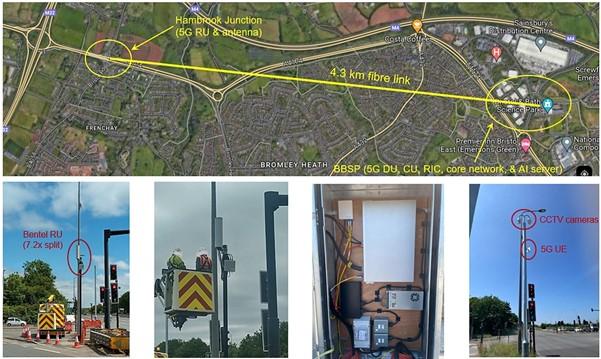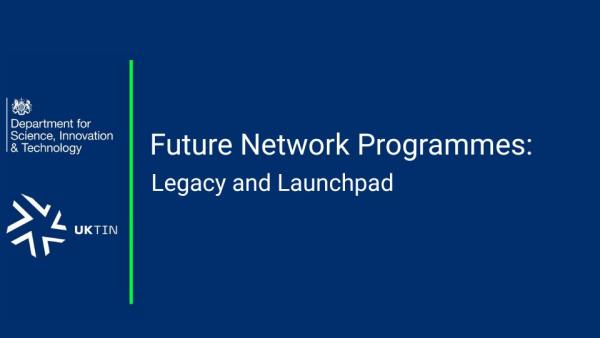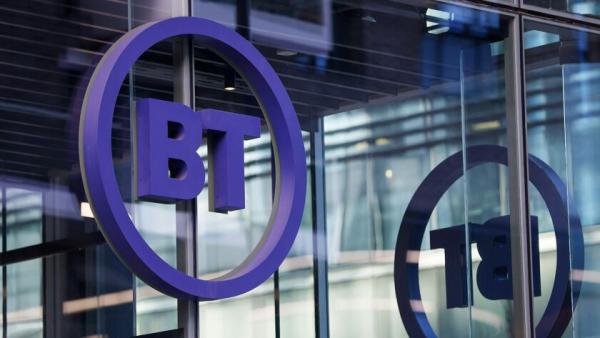FRANC was the first intervention DSIT announced from the Open Networks Programme in 2021. A total of 14 projects were funded to support the goals of the Government’s 5G Supply Chain Diversification Strategy by helping to incentivise the industry to create new products and services to unlock the full potential of Open RAN.
These projects have enabled a wide range of organisations to focus on developing technical solutions such as:
• Radio transmitters
• Signal processing equipment
• Power management systems
• Software to support open interface architectures
The projects spread across the UK, including Glasgow, Cardiff, Cambridge, Newcastle, Newport, Slough and Ebbw Vale - building on the existing industrial strength of these regions, while further developing an engineering base with a new set of skills.
The projects are coming to a close this year, and we will be publishing a series of case studies and project closure reports to ensure that the broader ecosystem is able to benefit from the learnings and developments of each project .
In the latest in our FRANC case study series, we explore the Beacon-5G project.
BEACON-5G produced a cyber-resilient O-RAN compliant 5G system (5G O-RAN) aligned with Open RAN framework and principles, with reconfigurability, security, trustworthiness, and service architecture agility. This was successfully demonstrated in action at one of the busiest traffic junctions just off the M32 on the North Bristol Ring Road in South Gloucestershire, providing faster connectivity for a vehicle recognition and monitoring application to support the smart city initiative.
The core system can be rapidly reconfigured and optimised for diverse industrial and consumer applications for use in both private local networks, and public carrier networks.
- DSIT funding: £1.6m
- Partner funding: £1.5m
- Project dates: 01/01/2022 - 30/09/2023
- Locations: Bristol City & Ebbw Vale
- Project Partners: Toshiba Europe Ltd. UK, Thales UK Limited, Attocore Ltd, Coventry University, South Gloucestershire Council
Led by Toshiba Europe, the project consortium brought together Toshiba and Thales, along with four International O-RAN equipment suppliers - Accelleran, Benetel, Effnet, Phluido - and a UK 5G core network solutions provider, Attocore.
It also included South Gloucestershire Council who was responsible for the smart city use-case trial and supporting design and implementation activities. Also included weres academic partners Coventry University and Swansea University who contributed to the cyber security work.
Highlights and insights:
- End of Project Showcase: In September 2023 the project hosted an event to exhibit some of its key achievements, breakthroughs, and technological innovations for 5G Open RAN. The event celebrated the successful deployment of a multi-vendor 5G Open RAN system at one of the busiest traffic junctions of South Gloucestershire, with a 4.3 km fronthaul link. This local private 5G network, operating in band n77, was able to showcase faster connectivity for sensors, CCTV cameras and workforce. As a result, the network demonstrated this technology could play a crucial role in improving traffic management and road safety as well as empowering South Gloucestershire Council in fulfilling its digital transformation goals.

- Tool Framework for security and resilience - BEACON 5G demonstrated the principles of a scalable ‘Tool Framework’ for detection based around recording of evidence and decision making. In the context of this ‘Tool Framework’ BEACON 5G has demonstrated the automatic / semi-automatic use of tools in the context of cyber resilience to provide both system resilience and evidence for courts or regulators. This could feasibly and beneficially be extended and integrated into OEM and Tier supplier processes in future.
- Skills for security - BEACON 5G has demonstrated that the requirement to reskill and the type of skills required could be made achievable, affordable and effective by prioritising the industrialisation of cyber resilience. It is important that this transition is achieved over the next 3 years before the cost of addressing and meeting security and related regulations in the current manner makes this unaffordable.
Next steps after the project funding period:
• BEACON 5G consulted with representative members of the automotive eco system to determine whether the BEACON 5G toolchain might advantageously be incorporated into their engineering and business processes, what impediments there might be to achieving this and what advantages or disadvantages there might be this to be achieved.









